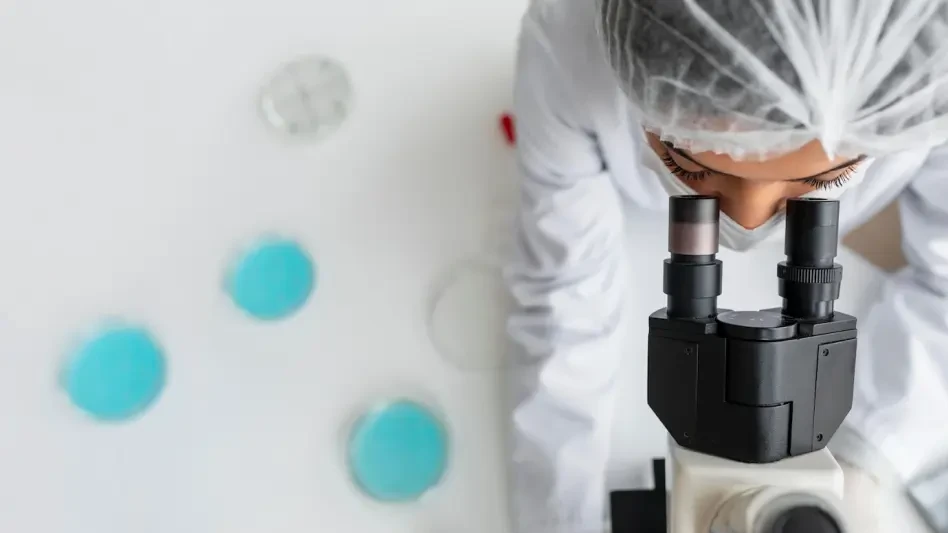In today’s discussion, we’re joined by Faisal Zain, a leading figure in the biopharmaceutical industry with a deep expertise in medical technology and innovation. With his extensive experience in the manufacturing of medical devices, Faisal offers an invaluable perspective on the current dynamics within the field. We’re excited to delve into the latest developments around Nektar’s rezpegaldesleukin (rezpeg) and its positioning in the competitive landscape of atopic dermatitis treatments.
Can you explain the mechanism of action of rezpegaldesleukin (rezpeg) and how it differs from other treatments for atopic dermatitis, like Dupixent?
Rezpeg functions by targeting the interleukin-2 (IL-2) receptor complex, stimulating regulatory T cells to bring the immune system into balance. This is a novel approach compared to Dupixent, which blocks IL-13 and IL-4 pathways directly associated with inflammation. The differentiation lies in rezpeg’s effort to modulate rather than inhibit.
What were the key findings from the Phase 2b clinical trial of rezpeg in terms of efficacy?
The Phase 2b trial demonstrated that all three doses of rezpeg achieved statistically significant reductions in disease severity scores over 16 weeks. The highest dose achieved a 30% placebo-adjusted reduction, showcasing promising efficacy, although it fell short of the reduction levels seen in leading competitors.
How do the clinical trial results of rezpeg compare to those of Dupixent, particularly in terms of score reduction and overall effectiveness?
While cross-trial comparisons have limitations, Dupixent showed a 50% placebo-adjusted score reduction in similar studies, outpacing rezpeg. Dupixent also achieved higher rates of significant improvement from baseline measures, which remains a benchmark for regulatory success.
What are the main safety findings from the rezpeg trial, and how do they compare with the adverse event profile of Dupixent?
Rezpeg was generally well-tolerated, with the primary adverse event being injection site reactions. Importally, rezpeg showed higher rates of these reactions compared to Dupixent, which could potentially affect its competitive standing if no additional advantages are demonstrated.
Can you provide more context on the injection site reactions observed in the rezpeg trial?
These reactions were relatively common but generally mild. They’re not necessarily a major concern for patient safety, yet they underscore a hurdle in presenting rezpeg as a preferred alternative due to comfort and convenience factors.
How do you see the competitive landscape for atopic dermatitis treatments, and how do you plan to position rezpeg against established products like Dupixent?
Rezpeg is entering a saturated market led by Dupixent. Our strategy involves highlighting any unique benefits in efficacy or tolerability uncovered in further studies. We are also exploring alternative indications to broaden its application potential.
What are the next steps for the rezpeg clinical development program, particularly regarding the 36-week maintenance study?
The 36-week study aims to evaluate long-term efficacy and safety. Results are crucial for validating rezpeg’s viability in ongoing management of atopic dermatitis, offering insights into sustained therapeutic benefits or adverse events.
Beyond atopic dermatitis, what other potential indications is Nektar exploring for rezpeg?
Nektar sees potential for rezpeg in treating other immunological disorders. The ongoing Phase 2b trial in alopecia areata is one such venture, potentially broadening the drug’s applicability in immune modulation.
Could you provide an update on the alopecia areata trial and any preliminary insights?
Preliminary data for the alopecia areata trial is expected soon. Early indications suggest possible efficacy, but we’ll need to wait for complete data to affirm these trends and guide further development.
What factors contributed to the significant increase in Nektar’s stock price, and what does this mean for the company moving forward?
The stock surge largely reflects market interest and a correction in valuation rather than a direct response to differentiated product value. However, it underscores confidence in Nektar’s pipeline potential as stakeholders anticipate further data.
Could you elaborate on the previous partnership with Eli Lilly and the current litigation process?
The partnership ended amid unsatisfactory trial results, and Nektar alleges data miscalculation by Lilly. This litigation highlights issues in data integrity but also underscores Nektar’s commitment to defending its interests in competitive products.
How does Nektar’s cash position influence your strategic decisions for rezpeg and other pipeline developments?
Our cash reserves bolster our ability to invest in ongoing trials and research, enabling us to prioritize projects with promising returns while maintaining flexibility to adapt to market dynamics.
Are there any additional data updates or milestones that stakeholders should anticipate in the near future?
Stakeholders should look for updates from the ongoing 36-week maintenance study and alopecia areata trials. These will provide critical insights into rezpeg’s value proposition and potential role in the market.
In light of the issues surrounding the Eli Lilly partnership, what steps are you taking to ensure the integrity and accuracy of your clinical data?
We have reinforced internal processes for data collection and analysis, ensuring rigorous oversight and validation to maintain the highest standards of accuracy and transparency across all research initiatives.









